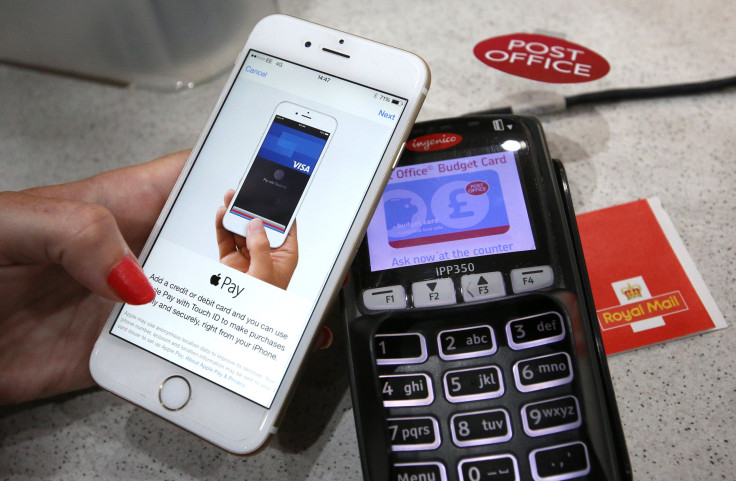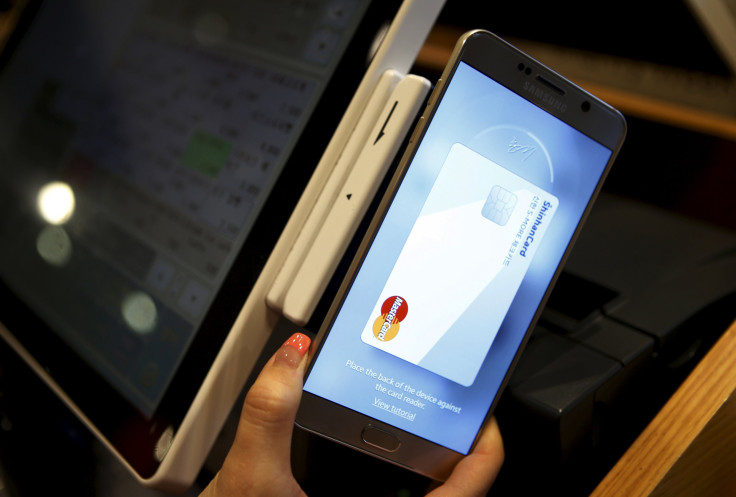Apple And Samsung Will Launch Mobile Payment Battle In China In 2016

With mobile payments seen as one of the biggest areas of growth for smartphone companies in the coming years, it is no surprise to see Apple and Samsung have both signed deals with China's state-run credit and debit card processing network, UnionPay, to launch their respective services in the world's biggest smartphone market in 2016.
Rumored last month, Apple's announcement revealed that iPhone users will be able to begin paying for items using their smartphones "as early as 2016" with the support of 15 banks, though the names of the specific institutions are still unknown. “China is an extremely important market for Apple, and with China UnionPay and support from 15 of China’s leading banks, users will soon have a convenient, private and secure payment experience,” Eddy Cue, Apple's vice president in charge of internet and services, said in a press release.
Previous reports had suggested that Apple Pay would launch as early as February, but the company will need to clear the "relevant tests and certification required by Chinese regulators."
Customers of UnionPay will be able to add their cards to the latest iPhones and iPads as well as the Apple Watch, and use Apple Pay at the over five million UnionPay terminals which support near field communication (NFC), the technology that powers Apple Pay.

Also rumored ahead of launch was Samsung Pay's entry in China, with the South Korean company also announcing Friday that it had signed a deal with UnionPay to allow its mobile payment solution to be used by a range of Samsung smartphones. The world's biggest smartphone maker has given a slightly more concrete launch timeline, saying it hopes to have the service up-and-running in the first half of 2016.
Samsung Pay launched in South Korean in August, followed by the U.S. in September. Samsung has signed a deal with MasterCard to allow it roll out the service across Europe, but the company has not announced a launch date. While Samsung Pay has until recently only been supported by the company's high-end smartphones, including Galaxy Note 5, Galaxy S6, S6 Edge and S6 Edge Plus, the company has recently announced that its mid-range A series of smartphones -- aimed at markets like China -- will also support the service.
Samsung Pay works in a similar fashion to Apple Pay but has the added benefit of being able to generate a magnetic field to simulate a magnetic-card swipe, meaning it can be used at many more locations.
It is unknown what deal Apple and Samsung has struck with UnionPay in terms of the percentage fee they will be taking from each transaction, but it is likely to be a lot less that the fee they take in markets like the U.S. where merchants can pay up to 2 percent to each transaction to companies like Mastercard. In China, that overall figure is under 0.5 percent on average, meaning Apple and Samsung will have to be happy with a smaller slice of the action.
However, China is a booming market for mobile payments. Data from the central bank shows that mobile-payment transactions jumped 134 percent to 22.6 trillion yuan ($3.5 trillion) last year. While Apple and Samsung may be big names in the smartphone world, they are entering a market where they will be completely overshadowed by Alibaba's Alipay, which commanded 83 percent of China's third-party mobile payment industry in 2014, with Tencent's Tenpay taking a further 10 percent, according to figures from iResearch.
© Copyright IBTimes 2024. All rights reserved.






















